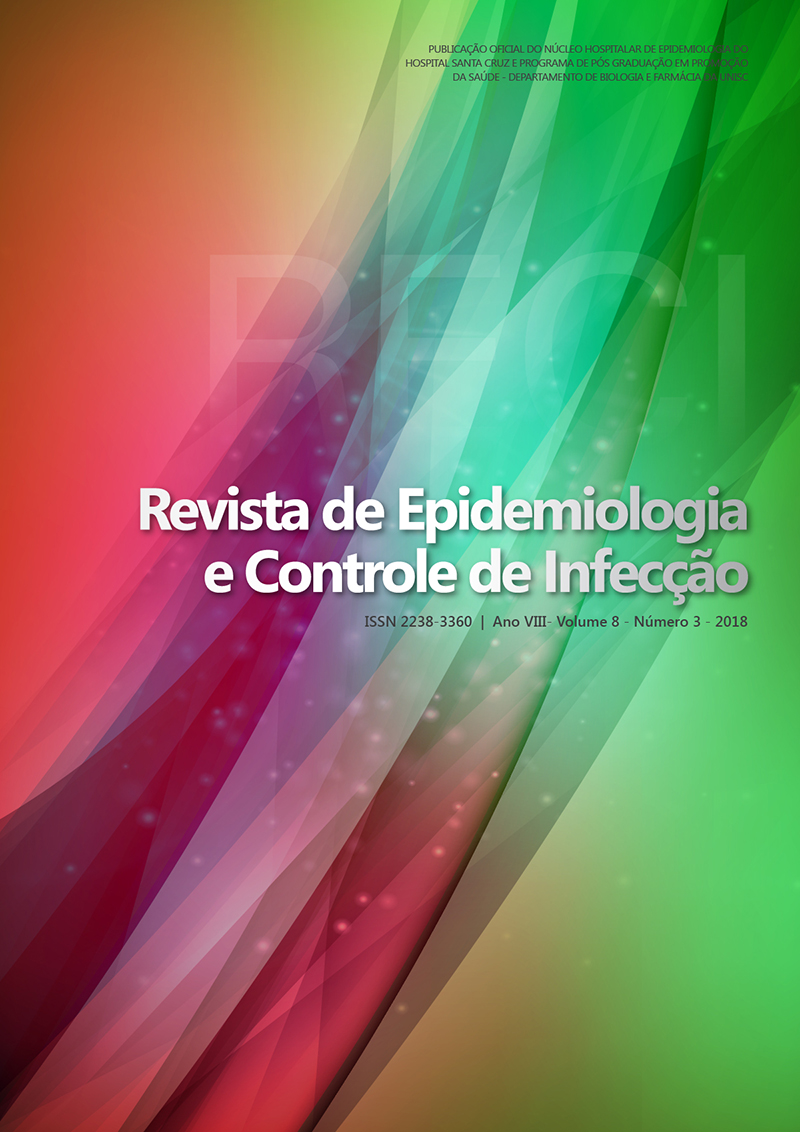Caloric-protein adequacy of internal patients in a unit of intensive therapy
DOI:
https://doi.org/10.17058/reci.v8i3.11779Abstract
Background and Objectives: Enteral Nutritional Therapy (NER) is used for the maintenance or recovery of nutritional status in individuals with functioning gastrointestinal tract, with oral intake partially or totally compromised. The objective of this study was to evaluate the adequacy of NER between the prescribed and administered in patients hospitalized in an Intensive Care Unit of a Teaching Hospital in the interior of Rio Grande do Sul. Methods: This is a descriptive, cross-sectional and quantitative study of 25 patients aged ≥18 years, who were on exclusive NSTEM for a period ≥72 hours. Data collection was performed between September and December 2017 through a Nutrition Service form and the follow-up was carried out until the discharge of the unit or death or discontinuation of the exclusive TNE. Appropriate energy and protein administration ≥ 80% of the needs were considered. The data were analyzed through descriptive statistics and tested by Spearman Correlation in the SPSS program version 20.0. Results: Of the patients evaluated, the majority were overweight (52%), pulmonary disease (28%), started with early nutrition in up to 48 hours (92%), were discharged from home (68%) and 20.0% or diarrhea. We observed that the adequacy of the caloric value was 88.25% ± 2.55, similar to the protein adequacy 88.49% ± 2.51. Conclusion: There was an adequacy between the calories and the prescribed and administered protein higher than expected, allowing an effective caloric / protein administration, thus being more efficient the nutritional conduct.Downloads
Downloads
Published
How to Cite
Issue
Section
License
The author must state that the paper is original (has not been published previously), not infringing any copyright or other ownership right involving third parties. Once the paper is submitted, the Journal reserves the right to make normative changes, such as spelling and grammar, in order to maintain the language standard, but respecting the author’s style. The published papers become ownership of RECI, considering that all the opinions expressed by the authors are their responsibility. Because we are an open access journal, we allow free use of articles in educational and scientific applications provided the source is cited under the Creative Commons CC-BY license.


